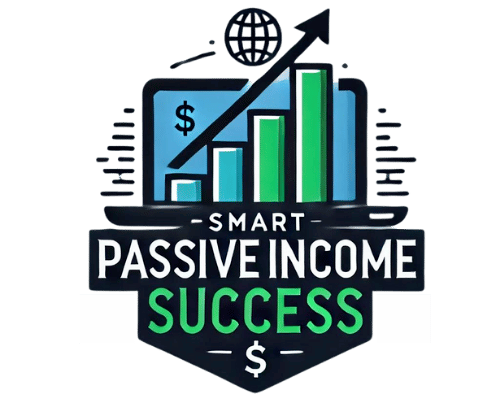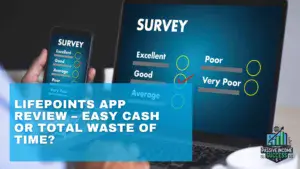In the dynamic world of digital marketing, pairing affiliate marketing with social media is akin to combining a match with fuel to ignite a spectacular blaze. At its core, affiliate marketing is a performance-driven approach that rewards you for promoting products or services belonging to others. Social media, with its expansive reach and highly engaged audiences, serves as the ideal platform to showcase these offerings.
But let’s be clear: this journey transcends merely posting links and hoping for the best. It’s about cultivating a community centred around your passions and expertise. As we delve into the realm of affiliate marketing on social media, prioritising the user experience becomes non-negotiable. Adopting a people-first mindset is crucial, ensuring the content you share not only resonates with your followers but also enriches their lives.
At the heart of successful social media affiliate marketing lies the principle of trust, a pillar of the E-E-A-T (Experience, Expertise, Authoritativeness, and Trust) framework. Embracing these values not only bolsters your credibility but also lays down an ethical blueprint for your affiliate marketing efforts on these platforms.
Identifying the most suitable social media platform is a pivotal step towards achieving your affiliate marketing goals. It’s not about spreading your efforts thinly across the digital landscape but about strategically selecting platforms that best match your niche and where your target audience is most engaged.
This targeted approach paves the way for meaningful interactions and, ultimately, converting those likes into leads.
Table of Contents
Choosing the Right Social Media Platforms for Your Niche

Embarking on your affiliate marketing journey requires selecting the ideal social media arena that aligns with your niche. It’s essential to recognize that not all platforms will serve as a lucrative field for your specific market. The key lies in identifying where your target audience spends their time and engaging with them there.
To master this selection process, a bit of investigative work is necessary. Begin by defining your target demographic’s characteristics, such as age, interests, and online habits. Different social platforms cater to distinct audiences, making this step critical for your strategy.
Instagram and TikTok: The Youthful Visual Sphere

Facebook: A Broad Audience Canvas

Facebook’s diverse user base offers a broad canvas for affiliate marketers. Its wide age range and versatile content formats make it a fitting choice for a variety of niches. Whether your focus is on creating engaging posts or leveraging Facebook groups, this platform can accommodate your affiliate marketing strategies.
Pinterest: The Visual Discovery Powerhouse

Pinterest stands out as a visual discovery engine, making it a goldmine for affiliate marketers focusing on lifestyle, home decor, fashion, DIY, and similar visually-rich niches. Its unique format allows users to discover, save, and share visual content, making it an ideal platform for promoting products through compelling images and idea pins.
What sets Pinterest apart is its user intent. People come to Pinterest for inspiration and to plan future purchases, which means they’re already in a mindset that’s receptive to affiliate marketing messages. By leveraging Pinterest’s rich pins, you can provide extra context to your posts, such as product details and pricing, directly linking to your affiliate products. This seamless integration between inspiration and purchase opportunity makes Pinterest an invaluable platform for driving affiliate sales.
Engagement on Pinterest is often driven by the visual appeal and usefulness of the content. Creating captivating, high-quality images that resonate with your target audience can lead to significant organic reach and repinning, extending the lifespan of your affiliate content far beyond that of traditional social media posts. This evergreen aspect of Pinterest content ensures that your affiliate links can continue generating leads and sales over time.
To maximise your success on Pinterest, focus on crafting pin descriptions that incorporate relevant keywords without sacrificing the natural, conversational tone. This approach will improve your visibility in Pinterest searches, driving more traffic to your pins and, subsequently, to your affiliate links.
Embracing Pinterest as part of your affiliate marketing strategy on social media not only diversifies your platform presence but also taps into a user base that is actively seeking ideas and ready to make purchases. With its blend of visual appeal and search-driven traffic, Pinterest can be a powerful tool in your affiliate marketing arsenal.
LinkedIn: The Professional Network

LinkedIn emerges as the premier platform for those in the B2B sector or targeting professionals. It’s a hub for professional networking and content that caters to business-minded individuals.
If your affiliate marketing efforts revolve around professional services or products, LinkedIn’s environment is tailored for your content.
Engagement: The Cornerstone of Success
Regardless of the platform, engagement remains the cornerstone of successful affiliate marketing. It’s not just about the content itself but how it resonates with the platform’s users. A platform with an active and engaging user base amplifies your chances of converting viewers into leads. Opt for platforms where your content aligns naturally with user preferences and where interaction is vibrant.
This guidance aims to steer you towards making an informed platform choice for your affiliate marketing endeavours. Remember, the digital landscape is ever-evolving, and flexibility in adapting your strategy is paramount.
Related Post: Ultimate Guide to Affiliate Marketing
Building Trust and Authority with Quality Content

Diving into the world of affiliate marketing on social media, the bedrock of your success rests on two critical elements: trust and authority. These are not just buzzwords; they are the foundation upon which your affiliate efforts thrive. Let’s explore how to nurture these key pillars and understand their significance in your affiliate journey.
Embrace the E-E-A-T Principle
The principle of E-E-A-T, standing for Experience, Expertise, Authoritativeness, and Trustworthiness, is pivotal in crafting content that doesn’t just climb the SEO ladder but also genuinely connects with your audience. When you hit these marks, you’re setting the stage for a deeper relationship with your followers, paving the way for clicks that can morph into affiliate successes.
Passion and Expertise: Your Content Compass

Kickstart your content creation journey by zeroing in on topics you’re passionate about and knowledgeable in. Your expertise will naturally imbue your content with authenticity, making it both captivating and informative. This journey is more than just about peddling product links; it’s about enriching your audience’s lives with valuable tutorials, reviews, personal stories, and insights that tackle their needs and curiosities.
Utility: The Heart of Your Content

Your content should act as a beacon, offering solutions, answering queries, or presenting fresh perspectives. Striking a balance between delivering quality information and maintaining a consistent posting rhythm solidifies your stance as a trusted resource within your niche. Remember, your role transcends selling; it’s about enhancing lives with your recommended products.
The Visual Dimension

Never underestimate the power of visuals. Engaging images, infographics, and videos can elevate your content, making it more accessible and appealing.
Demonstrating products in use or providing visual guides not only boosts engagement but also encourages your audience to take the next step.
Cultivating Community Through Interaction

Engaging with your audience through comments, feedback, and discussions nurtures a community atmosphere. This interaction cements a bond, making your recommendations more trustworthy. When your audience feels valued and listened to, their likelihood of following your advice increases.
Translating Credibility into Affiliate Success
With a clear understanding of crafting trust-building content, it’s time to transition these efforts into actionable affiliate marketing strategies on social media. Here, you’ll learn to convert the credibility you’ve worked hard to build into measurable outcomes for your affiliate ventures.
Related Post: The Importance of Building Relationships in Affiliate Marketing
Effective Strategies: Using Social Media For Affiliate Marketing

Embarking on the affiliate marketing journey through social media requires more than just sharing content; it demands a strategic approach that turns your social feeds into fertile ground for success. Here, we’ll explore practical strategies to elevate your affiliate marketing game on these platforms.
Crafting Posts That Connect and Convert

Your strategy should revolve around creating content that’s not just engaging but also subtly persuasive. The goal isn’t to push products aggressively but to showcase them as solutions to your audience’s challenges. Take, for instance, promoting a book. Sharing how it opened new perspectives for you or addressed a specific problem can make your content relatable and compelling.
The Power of Resonance and Collaboration

Ensuring your chosen products align with your audience’s interests is crucial. Engaging with influencers who share a genuine connection with their followers can significantly extend your reach and add authenticity to your promotions. Remember, a content creator’s alignment with your niche is far more valuable than their follower count. Quality engagement always outweighs sheer numbers.
Leveraging Platform-Specific Features

Maximize the unique tools each social media platform offers. Instagram’s Stories and Reels, for example, provide dynamic ways to share affiliate content that’s both informative and engaging. Meanwhile, Facebook Groups can serve as a niche forum for discussing and promoting products relevant to group interests. Keeping up with platform updates is vital, as they frequently introduce new features that can benefit your marketing strategies.
The Importance of Consistency

Consistency is the cornerstone of building a recognisable brand on social media. An erratic posting schedule can confuse and disengage your audience. Developing a content calendar helps ensure a steady stream of posts, keeping your audience connected and increasing the chances of affiliate link exposure.
Measuring Success: The Next Step
As we pivot towards evaluating the effectiveness of your affiliate marketing efforts, remember, that success on social media isn’t just about content distribution. It’s crucial to analyze what resonates, identify areas for improvement, and continuously refine your strategy to enhance engagement and conversions.
Related Post: 5 Common Mistakes To Avoid in Affiliate Marketing
The Ultimate Affiliate Marketing Guide: Sign Up Now for Exclusive Tips and Strategies!
Measuring Success and Adjusting Your Approach

Unveiling the mystery of your social media efforts’ effectiveness transcends the simple tally of likes or comments. It involves a deeper dive into the analytics, understanding the narratives behind the numbers, and harnessing this knowledge to refine your strategies.
Beyond Likes: The Metrics That Matter

To truly gauge the impact of your affiliate marketing efforts, it’s essential to familiarize yourself with key metrics such as click-through rates (CTR), conversion rates, and overall engagement levels. These figures do more than quantify success; they offer insights into what captivates your audience and what doesn’t.
Analytics: Your Strategy's Compass

Analytics tools are invaluable in your quest to understand audience preferences and content performance. They allow you to identify successful tactics and areas needing improvement. But it’s not just about retrospective analysis; these insights are pivotal for shaping your future content and engagement strategies.
Embracing Flexibility in Your Strategy

Encountering setbacks in your initial attempts is part of the learning curve. Remember, the realm of social media is in constant flux, with platforms frequently updating algorithms and features. This dynamic environment necessitates a flexible approach, enabling you to adapt and evolve your strategies over time.
Choosing the Right Analytics Tools

Selecting an analytics platform is a personal choice that should align with your specific needs and preferences. Whether you opt for the built-in analytics features of social media platforms or third-party tools, the goal is to choose a resource that offers clear, actionable insights.
Keeping Pace with the Fast-Moving World of Social Media

The landscape of social media changes at a breakneck pace. Regularly revisiting and revising your strategy is not just about staying current; it’s about proactively leveraging these changes to benefit your affiliate marketing endeavours.
Related Post: Top Tips For Optimising Your Affiliate Strategy
Frequently Asked Questions (FAQ's)

Q: Can I use all social media platforms for affiliate marketing?
A: While you can technically use any social media platform for affiliate marketing, success varies depending on your niche, the platform’s user demographics, and the types of content that perform best on each platform. It’s crucial to choose platforms where your target audience is most active and engaged.
Q: How do I find the right influencers for my affiliate marketing strategy?
A: Look for influencers who align with your niche and whose followers match your target audience. Assess their engagement rate, content quality, and how their audience interacts with their posts. Collaboration should feel natural and authentic to both your brand and the influencer’s style.
Q: What type of content works best for affiliate marketing on social media?
A: Content that adds value to the audience’s lives performs best. This can include tutorials, reviews, personal stories, and how-to guides related to the products you’re promoting. High-quality visuals and engaging, informative captions can significantly boost your content’s performance.
Q: How often should I post affiliate content on social media?
A: The frequency can vary based on the platform and your audience’s preferences. However, it’s important to maintain a balance between affiliate content and organic, value-driven posts to avoid overwhelming your followers with promotions.
Q: Is it necessary to disclose affiliate partnerships on social media?
A: Yes, transparency is key in building trust with your audience. Most social media platforms and legal jurisdictions require you to disclose affiliate relationships and sponsored content clearly. This can typically be done through hashtags like #ad or #sponsored, or a straightforward disclosure within your post.
Q: How do I measure the success of my affiliate marketing efforts on social media?
A: Utilize analytics tools to track metrics such as click-through rates, conversion rates, and engagement levels. These metrics will help you understand which strategies are working, which ones aren’t, and where there’s room for improvement.
Q: Can I do affiliate marketing on social media without a website?
A: Yes, you can direct your followers to affiliate products directly through your social media content. However, having a website or a blog can enhance your credibility and provide an additional channel to share in-depth content and reviews, potentially increasing your affiliate earnings.
Related Post: How to Increase Your Affiliate Commissions
Conclusion - Using Social Media For Affiliate Marketing
We’ve journeyed through the intricate landscape of using social media for affiliate marketing, uncovering the significance of selecting platforms that echo with your audience and implementing strategies that not only highlight your products but also your integrity and expertise.
Affiliate marketing transcends mere transactions; it’s about fostering authentic connections. The ethical path, marked by transparency with your audience, should be your compass. The trust of your followers is invaluable, far outweighing the allure of quick profits. Always be upfront about your affiliate partnerships, as trust is the currency of success in this digital age.
As you navigate the ever-changing realm of social media affiliate marketing, be prepared for the evolution of platforms, the advent of new features, and the shifting tides of audience preferences. Your initial foray is just the beginning. The landscape of social media is dynamic, offering you the flexibility to refine and adapt your strategy over time.
For those poised at the starting line, eager for a robust launchpad, consider embarking on a comprehensive training program rooted in industry best practices and the E-E-A-T principles. Such an investment in your development paves the way to not just temporary gains, but sustained achievement.
It is my sincerest wish that these insights illuminate your path to affiliate marketing success on social media. Should you have questions or wish to share your journey, I warmly invite you to engage in the comments below. Your stories and inquiries enrich our collective understanding and foster a community of growth and success.







Hey there!
Thanks for this comprehensive guide on leveraging social media for affiliate marketing. It’s packed with insightful tips and strategies that I can’t wait to implement.
One option I’ve found particularly effective in converting likes to leads is by creating engaging and informative content that subtly integrates affiliate links. By providing value to my audience first, I’ve noticed a significant increase in click-through rates and conversions.
I do have a question regarding engagement strategies on platforms like Instagram and Twitter. How do you suggest maintaining authenticity while still promoting affiliate products?
I want to ensure that my audience feels like they’re getting genuine recommendations rather than just being sold to.
Looking forward to your insights!
Best regards,
Matthew
Hey Matthew,
Thanks so much for your feedback and for sharing your successful strategy! It’s fantastic to hear that you’re seeing great results from focusing on creating engaging and informative content. That approach really is key to not only attracting but also retaining an audience interested in your recommendations.
Regarding your question on maintaining authenticity while promoting affiliate products on platforms like Instagram and Twitter, it’s a concern many affiliate marketers share. Here are a few strategies that might help:
Personalize Your Recommendations: Share your personal experiences with the products or services you’re promoting. When your audience hears about how a product has impacted your life or solved a specific problem, it feels more like a recommendation from a friend rather than a sales pitch.Transparency is Key: Always disclose your affiliate relationships upfront. This transparency builds trust with your audience. They’ll appreciate your honesty and be more inclined to support you by clicking on your affiliate links.Quality Over Quantity: Instead of promoting a wide array of products, focus on a select few that you truly believe in and that align with your audience’s interests. This selectiveness reinforces the authenticity of your recommendations.Engage Authentically: Make sure to engage with your followers by responding to comments, asking for their opinions, and creating content that sparks conversation. Genuine interaction adds a personal touch and shows that you value their input and experiences.Educate Your Audience: Use your platform to educate your audience about the products or services. Instead of just listing the benefits, explain how it can be used, share tips and tricks, or demonstrate its value through tutorials or case studies. This approach emphasizes the utility and relevance of the product to your audience’s lives.
Maintaining authenticity on social media comes down to being genuine in your interactions, transparent about your affiliations, and thoughtful in the content you create. Your audience is there for you—your insights, your experiences, and your personality. Let those shine through in your affiliate marketing efforts.
I hope these strategies help, Matthew! Keep up the great work, and feel free to reach out if you have more questions or need further assistance. Your approach to providing value first is precisely what sets you apart in the world of affiliate marketing.
Best regards,
John
Thank you for this informative article! I appreciated the principles in business and the insight into the social media platforms and showing how each has a purpose when it comes to affiliate marketing. You showed that Pinterest has an audience in that they already are primed to buy or purchase.
Hello Lonnie,
Thank you so much for your feedback! I’m thrilled to hear that you found the article informative and that the insights into how different social media platforms can serve unique purposes in affiliate marketing were valuable to you.
It’s fascinating, isn’t it, how each platform caters to different audience behaviours and expectations? Pinterest, as you rightly pointed out, is a prime example of a platform where users are not just looking for inspiration but are also in a mindset to make purchases. This makes it an incredibly potent tool for affiliate marketers who can tap into that ready-to-buy audience with the right strategies and visually appealing pins that link back to valuable content or directly to affiliate products.
Leveraging the strengths of each social media platform can significantly amplify the reach and effectiveness of your affiliate marketing efforts. It’s all about matching your content and products with the platform where your target audience is most engaged and receptive.
I’m curious, have you had any personal experiences or successes with using Pinterest or other social media platforms for affiliate marketing? I’d love to hear more about your strategies or any insights you might have gathered along the way.
Thank you again for your kind words and for engaging with the article. Your interest and input are what drive me to share these insights. If there are any other topics or platforms you’re curious about, please let me know. I’m here to help and share in any way I can!
Best regards,
John